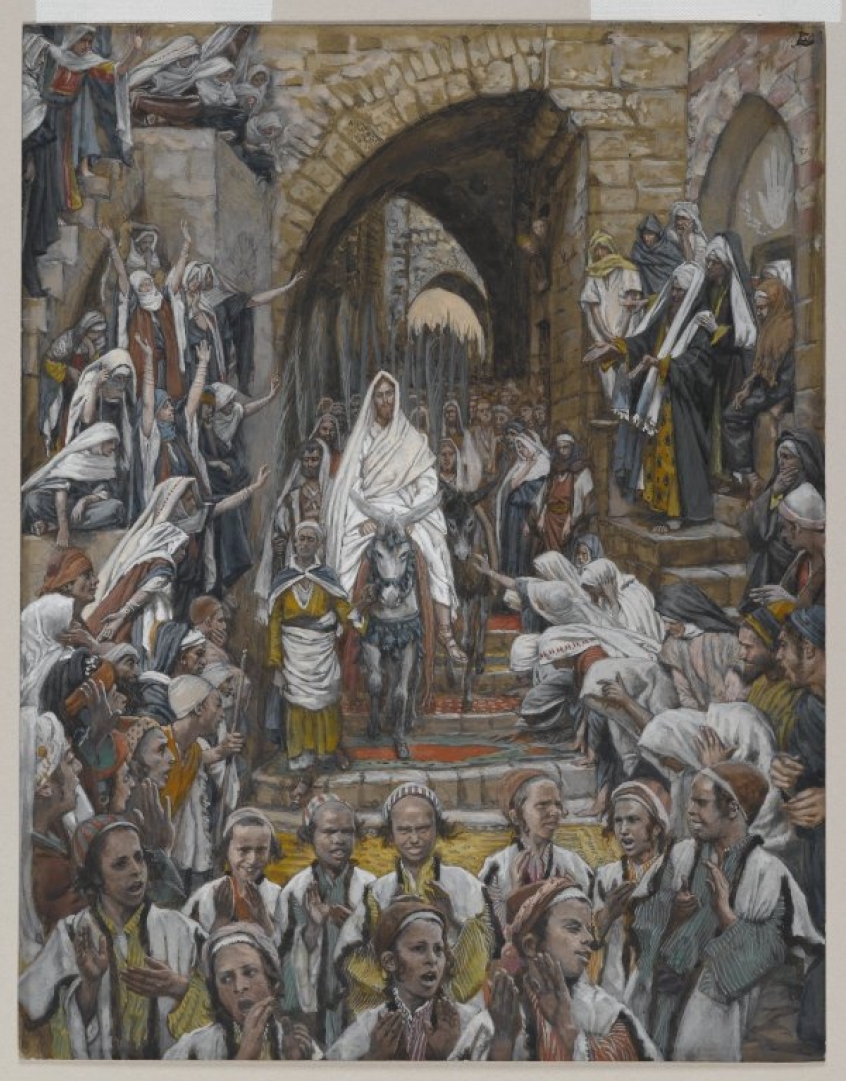Can even preachers who never learned Greek, or have forgotten what they did know, use the tools of real scholarship in their Easter preparation? Most assume they can't – but there's a remarkable online resource that can change that.
A project of Tyndale House, Cambridge, STEPBible is a comprehensive study tool that allows users not just to search different translations of and commentaries on the Bible, but to compare different Greek and Hebrew uses of words.

With Palm Sunday approaching, it can, according to developer David Instone-Brewer, help us visualise the scene by understanding the nuances of what the Gospel writers were trying to convey.
One thing that stands out is their strange choice of vocabulary. Matthew and Mark say the crowd 'spread out' materials for Jesus' donkey to walk on.
When you read it in STEPBible, and hover over the word 'spread' it says the Greek word is strōnnumi – a strange choice because it generally refers to spreading covers on a bed or a couch.
There were other words that would have fitted better. They could have used epiballō, 'to spread [a covering]', like a cloth over a table.
Or they could use diastrōnnumi, 'to spread [flooring]' which is used when spreading carpets on the ground (1 Samuel 9:25). Or there was anaptussō, 'to unroll' which was used when Gideon spread his cloak on the ground to collect all the gold ear-rings from the spoils of his battle (Judges 8:25). All of these were suitable for spreading something on the ground or over other surfaces, so why choose something that always implies a bed or a couch?
We could note the link with Passover couches and leave it there, says Instone-Brewer, but the original readers would have seen much more.
Clicking on the word 'spread' brings up the entry in the Liddell Scott Jones lexicon, which takes data not only from the Bible but the whole breadth of ancient Greek literature, so it often gives insights that normal Bible lexicons don't have.
There is a long definition, but at the end, under 'Related words' there is a 'a strewn bed'.
The entry for this includes a 'lectisternium'– and as Wikipedia says, a 'lectisternium' was the ancient Roman way to placate the gods. They spread fine cloths on couches and put them in the streets to make the gods welcome, especially at times of crisis, though this also developed into regular festivals. They also did it during Triumphs, when a conquering general marched through the city showing off his captives and trophies.
The crowds were welcoming Jesus like a god or a conquering hero. This wasn't a preacher's welcome. It was a welcome fit for a king or a god.













